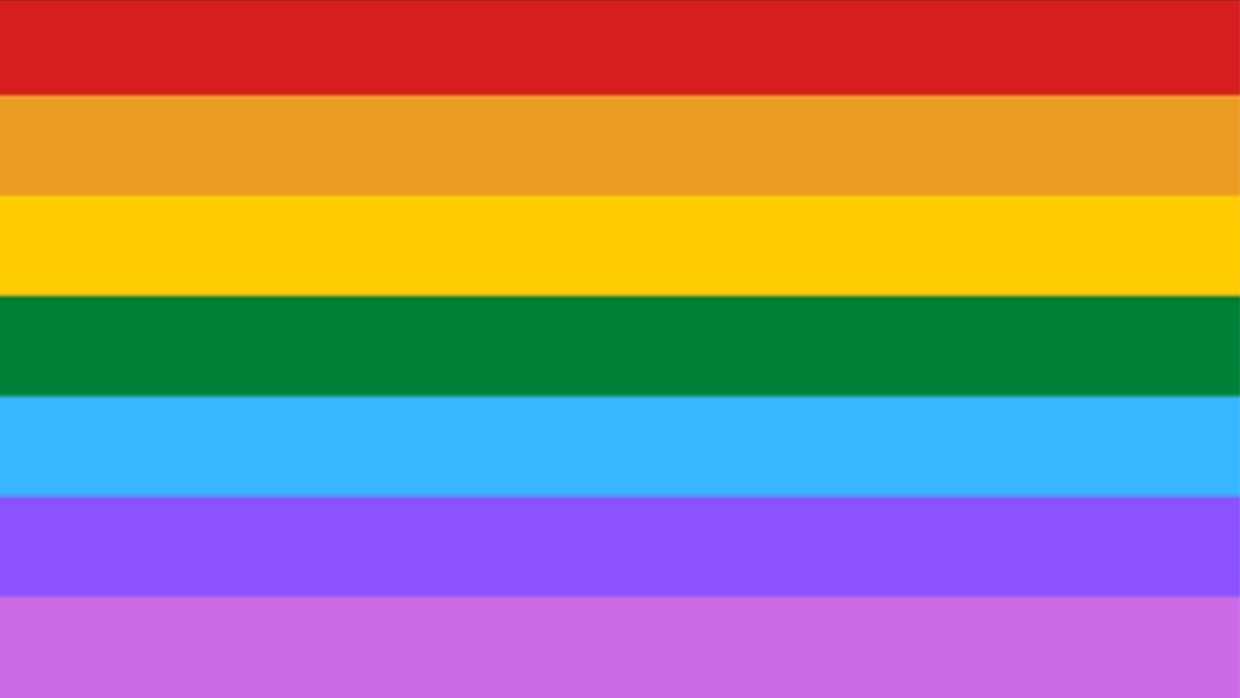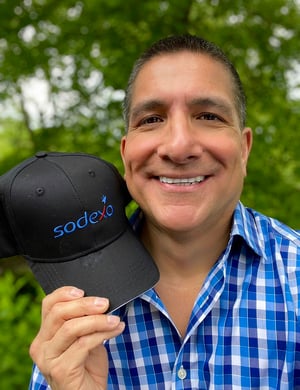It's a Journey Every Day

As the Vice President and Head of Diversity, Equity, and Inclusion at Sodexo US, Tony Tenicela leads the company's DE&I initiatives to help foster an inclusive workplace culture and ensure that Sodexo attracts, develops, engages, advances, and retains a workforce that reflects the communities we serve.
Interviewer: What led you to pursue a career advancing diversity, equity, and inclusion?

Tony: A deep appreciation for the power of diversity has always been an integral part of who I am. My parents immigrated from Peru to the United States and, throughout my childhood, exposed me to a wide range of diverse cultural experiences. As a first-generation Hispanic American, with a love for my Peruvian heritage, I always look to understand and value the unique ethnic and cultural experiences of people I come in contact with.
I've been in the DEI field for about 15 years and joined Sodexo in 2021. My role is focused on helping us localize our global DEI strategy in a way that resonates with our employees in the United States. It's really important for us to foster a culture of inclusion, that encourages employees to bring their authentic selves to work. That means being accountable for our actions. It means achieving a diverse and equitable workforce, that reflects the communities that we serve. It’s also incredibly important for us to address equity within the company. Employees in marginalized and underrepresented communities don’t always have the same opportunity for advancement. How do we equip everyone with the tools and resources to compete on an equitable playing field?
Interviewer: What made you consider joining Sodexo?
Tony: What attracted me to Sodexo initially is not what necessarily keeps me here today. What first attracted me was the company's strong global reputation for diversity, equity, and inclusion. What keeps me here today is the warm and inviting work environment. Sodexo employees are incredibly talented and experienced, and the level of motivation and passion they have for doing the right thing is often difficult to find in a large multinational organization.
Interviewer: You identify as a gay cis-man. How do you think your experience coming out differs from the experience your peers might have today?
Tony: I came out in my early 20s at a time when “gay rights” was still an emerging movement in many respects and identifying as LGBTQ+ could have significant consequences. That in no way is meant to lessen the impact of today’s coming out experience to family, friends, and colleagues. It’s a fraught decision at any time! Like many others, the reactions when I came out were on a spectrum - some positive, others not.
It's a very different world now than when I initially came out. There's a lot more emphasis now on the concept of intersectionality. For example, I identify as a gay Hispanic male, however I can't say that being gay is more important than being Hispanic. All of that is part of my identity. Intersectionality helps us better understand that each of us comes to the table proud of a wide range of social identities. It's our responsibility as a company to help us create an environment where employees feel that they can come into the company and be their authentic selves. They can bring every social identity to the workplace, feel proud, and leverage it in their work experiences. I know we're not there yet. It's great to be able to target and strategically focus on these challenges and opportunities.
Interviewer: What do you say to empower members of the LGBTQ+ community who may be struggling with the idea of coming out in the workplace?
Tony: Here's what I say to those I mentor as an openly gay Hispanic executive: Stick to the "ABCs." It has helped me move forward because I come out every day. It's a journey every day, but it does become easier!
"A" is about accountability. To feel comfortable coming out, I have to be accountable for identifying what is creating my fear and how to confront that fear. In my 20s, I realized that it would be more beneficial for me to feel free and open with my life, so that I could share it with everybody rather than just a few people. It also means taking accountability for finding mentors, speaking about your experiences with somebody you trust or somebody who has been on this journey, and realizing what you can learn from that person.
"B" is for being bold. I took risks. I came out to friends I knew were conservative-minded in my 20s, even in my 30s. Being bold for me is about realizing it's okay to take risks. What matters is my well-being. If someone isn't comfortable with me coming out, it may not be the right friendship.
“C” is about being courteous. Leading a conversation or relationship with empathy has always worked for me. Someone I'm interested in creating a relationship with may have a different mindset than I do. But I can appreciate where they're coming from. We may not agree on everything. If you stay very myopic or strong-willed with your ideas and are not open-minded to others, you tend to close yourself off.
Interviewer: What are your thoughts on Pride Month?
Tony: Every community should continue celebrating their identity and why they're so proud to be themselves throughout the year. Let's celebrate Pride Month in June, but at the same time, let's spread some of these key messages throughout the year.